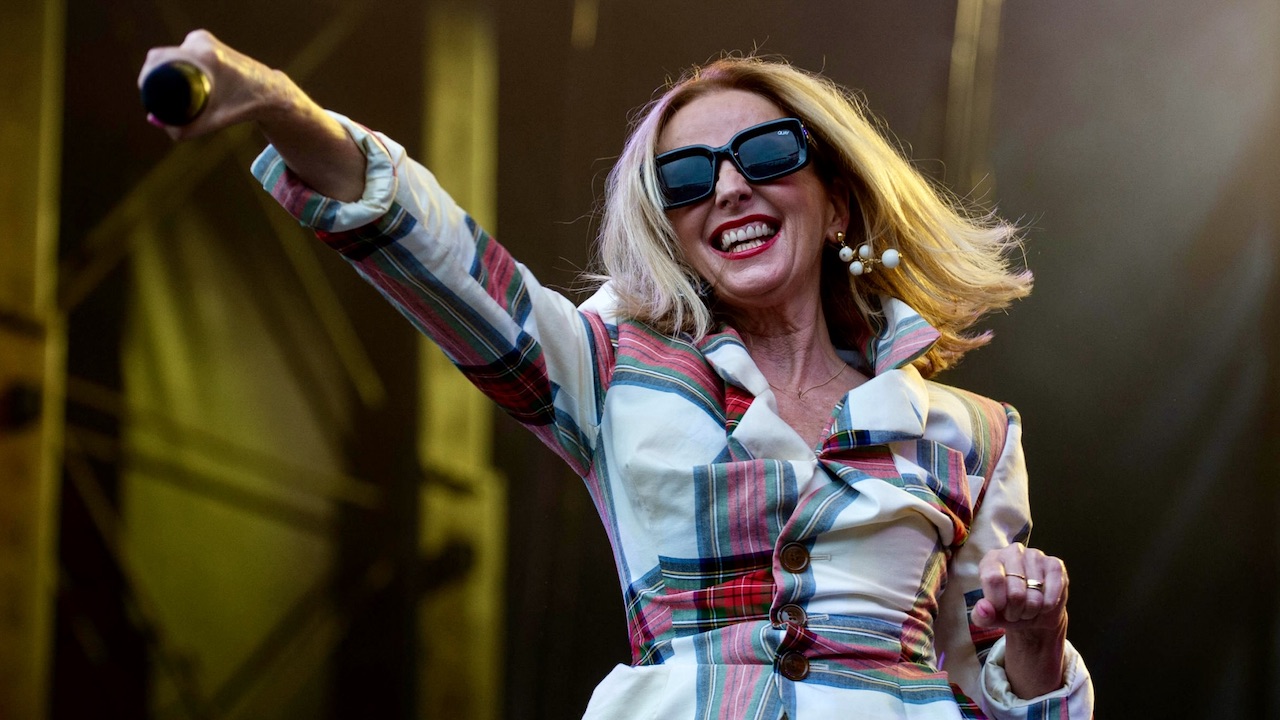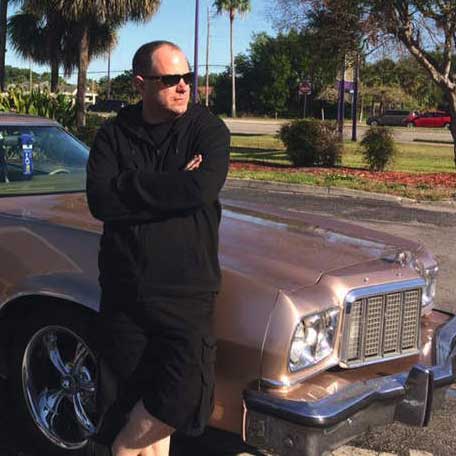With a wholesome pop image synonymous with early '80s new wave, it’s easy to forget Altered Images were formed in the white-hot creative furnace of the late 70s post-punk era.
A passionate music fan with eclectic and diverse teenage tastes, vocalist Clare Grogan was born in 1962, meaning she was the perfect age for embracing punk when it exploded in the late '70s. But 1980 was the pivotal year for the teenager: she left school, shot her film debut – iconic British classic Gregory’s Girl - that summer, and then Altered Images – formed just one year earlier – were signed by Epic, and sent out on tour with their heroes, Siouxsie and the Banshees.
Siouxsie, in fact, was one of three women at the forefront of punk who had a crucial influence on the young Clare Grogan’s developing singing career.
“Punk had a massive impact on me from the word go," she reveals. "I saw [X-Ray Spex vocalist] Poly Styrene on Top of the Pops one night and thought, ‘I love this person’.”
“I remember thinking, ‘This is what I’ve been waiting for. I just instantly wanted a part of it. It was an overwhelming feeling of having found my tribe. I just felt so excited by it.”
X-Ray Spex's 1978 single Germfree Adolescent duly became the teenager's first punk rock purchase. Equally infatuated with Siouxsie and the Banshees, Clare recalls carrying a copy of their debut seven inch single Hong Kong Garden around in her handbag, “just in case somebody hadn’t heard it.” Blondie’s Debbie Harry was another key inspiration.
“I loved these women,” Clare says. “When I was trying to find my own style, I really leaned into the way they performed and how they sang. I was really young – and so were they. I’ve got a lot to thank them for before I found my old feet.”
Altered Images were formed while the band – Johnny McElhone (bass), Gerard McInulty, Tony McDaid (guitars), and Michael Anderson (drums) – were still at Glasgow’s Holyrood RC Secondary School. In the DIY punk rock spirit, the lads learnt to play their instruments as they progressed. Practising twice a week in Carmunnock Town Hall, the band started playing Glasgow pubs, occasionally as support to Simple Minds – who went to the same school.
As a five-piece band with a female lead singer, Altered Images would inevitably be compared to Blondie, but the band quickly made a name for themselves on Clydeside.
“The Glasgow punk scene was so inclusive,” says Clare. “I just loved the idea that it was open to anyone. Anyone could be in a band. Girls like me could be in a band.”
A keen gig-goer, Clare learned the lessons of stagecraft from seeing Ian Dury and the Blockheads at Glasgow Apollo, followed by The Stranglers and The Clash. With central Glasgow punk rock shows running into trouble and council bans, the scene coalesced around tiny Paisley venue The Bungalow, still a respected historic gig venue to this day.
The association of Altered Images with new wave largely rests with Martin Rushent and the polished sheen of his production on breakthrough single Happy Birthday and second album Pinky Blue. But the band’s original sound was darker and more rudimentary – as their 1980 Peel Session demonstrates. There’s a clear Blondie influence on Beckoning Strings – sounding like Rip Her To Shreds – while Insects has a sinister feel, similar to early Banshees
Happy Birthday, the debut Altered Images album, was chiefly produced by Banshees bassist Steve Severin. At the time, Severin was flatmates with Skids vocalist Richard Jobson in West Hampstead, and Altered Images would make themselves at home when in London. But to record the album, they decamped to Wales’ famous Rockfield residential studio.
“We had great fun,” says Clare. “The Cure came to visit us. We ended supporting them a few times too.”
In the best punk rock style, the band's debut single Dead Pop Stars was controversial – albeit by sheer coincidence – being released three months after the December 1980 murder of John Lennon. The bad timing and inevitable lack of promotion meant that, while it hit number 67 on the UK single's chart, it was squashed by Epic, a false start to the band’s career.
“People love it when we play it live now,” says Clare, who says the reason for the single’s quiet withdrawal was known, but never discussed. “John Lennon wouldn’t have had a problem with it!”
Follow-up A Day’s Wait didn’t fare much better. But by this time, the band had become fans of the Rushent-produced Human League, after hearing the previously avant futurist band’s unashamed shift into the glossy new wave synth pop of their third album, 1981’s Dare.
“We wanted to get on Top of the Pops,” says Clare. “So, in an act of blatant commercialism, we decided to write a song called Happy Birthday. And it worked! That’s why we went to Martin Rushent. It makes us sound ruthlessly ambitious, which we weren’t!
Peaking at number 2 in September 1981, and going on to sell half a million copies, with Rushent’s production, the single now seems incongruous compared to the rest of the debut album. But an earlier and darker version of the track – long since lost to history – was originally recorded with the Banshees bassist behind the sound desk.
“I would love to hear it if I could ever get hold of it,” says Clare. “It would have been a lot punkier.”
Mascara Streakz, the fourth Altered Images album is released next month, a whopping 39 years on from the release of their 1983 under-rated third album, Bite. Written during the pandemic, Mascara Streakz, features Bite line-up drummer (and Mr Clare Grogan) Stephen Lironi, along with Bobby Bluebell and ex-Suede guitarist (and neighbour of Clare and Stephen), Bernard Butler.
Appropriately, the band return to an even further expanded Rebellion festival next month to play on the post-punk/new wave R-Fest stage, supporting another important influence, the Buzzcocks (the name ‘Altered Images’ comes from interference with sleeve design by founding Buzzcocks vocalist Pete Shelley and the sleeve artwork for their single Promises).
But what about the rest of the festival, particularly the more hardcore end of the spectrum? Will Altered Images feel at home alongside The Exploited?
“I love The Exploited!” says Clare of her fellow Scots punks. “The memories I have of them is just being in a service station in the middle of the night somewhere and you’d see the Exploited walking in and you’d be like, ‘Oh, hi!’ Back in the day those were the moments you really cherished! 3am rendezvous in motorway services while going up and down the country playing really shit clubs.”
“I still look back and think how lucky I was to be so young when I found something that has transformed my life.”
Altered Images play R-Fest at Rebellion on August 7. Their new album Mascara Streakz is out on Cooking Vinyl on August 26.

